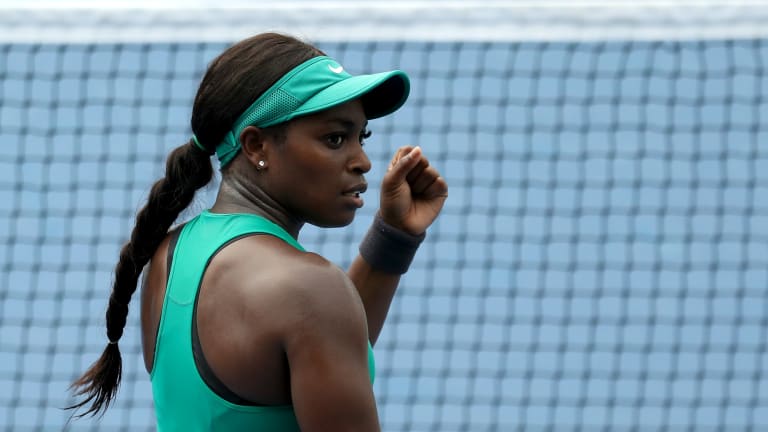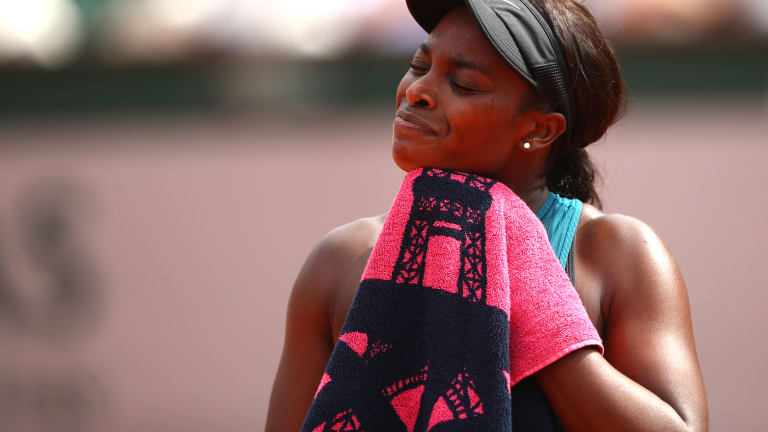Perhaps the only predictable aspect of Stephens’ last 12 months was what she did after her US Open triumph: as she said, she lost her next eight matches. For most players, success breeds confidence, which leads to more success. For Stephens, a big-match player who won her first six finals, success at a major led to a loss of focus at the comparatively minor events that followed. After winning at Flushing Meadows, the last thing she seemed to want to do was fly to Wuhan, China, a few days later for a tournament.
In 2018, though, Stephens has had a new perspective on her latest swoon. By winning in New York, she had proven to the world—and more importantly, to herself—that all the talk of her Slam-winning talent, the talk of her grabbing the U.S.-tennis baton from Venus and Serena Williams, hadn’t been hype or hot air. Now she knew she could play with anyone. In Kamau Murray, she also had a mentor she trusted. Murray, Stephens has said, is the first coach who knows her well enough not to crowd her, not to smother her; to let her be comfortable, let her be herself, let her succeed on her own time, in her own way.
“Everyone is so depressed and so down,” a smiling Stephens said of the U.S. media’s long-faced reaction to her first-round loss at the Australian Open in January. “It’s not tough times. It’s just a learning experience. It’s a new season. Luckily, there’s time to get in the best shape and make sure that I’m ready for my next tournaments...I’m going to have the best Instagram picture when I finally snap this losing streak.”
Stephens was right to be so sure of herself. Two months later, she beat four fellow major champions—Garbiñe Muguruza, Angelique Kerber, Victoria Azarenka and Jelena Ostapenko—on her way to the second-biggest title of her career, at the Miami Open. Two months after that, Sloane looked as if she was on her way to an even more important victory, at the French Open. After cruising past three up-and-coming opponents—Anett Kontaveit, Daria Kasatkina, and Madison Keys—she led Simona Halep in the final 6-3, 2-0.
By that point, Stephens had turned her game into a seemingly impenetrable fortress, one that blended power and speed, offense and defense, until there was nowhere for her opponents to go with the ball. Down a set and a break, Halep was ready to wave the white flag. “It’s gone, it’s over,” the Romanian said to herself.

